Our ORO Annual Report allows us to reflect on the continued use of this important research infrastructure both inside and outside the University.

Downloads. Over 2 million Open Access publications on ORO are downloaded every year from ORO. Downloads come from across the globe increasing the dissemination of OU research. Downloads increase annually as more open access publications are added to ORO.
Deposits. 3,000 publications are are added to ORO annually – these include legacy publications from new staff so this number isn’t a surrogate for current publication rates. Deposit of new publications to ORO is assisted by automated ingest of data from publisher alerts and the Jisc Router aggregation service.
Deposit numbers fluctuate within REF cycles, the total number of active researchers at the OU and (significantly) bulk ingest of legacy content (e.g. digitised theses).
Open Access. Over half the publications added to ORO are made immediately Open Access and this percentage increases as publisher embargoes on accepted versions in the repository expire. We’ve seen Open Access steadily grow over the last 10 years and it is now mainstream practice.
We increasingly see more Gold Open access items being added to ORO as the OU agrees more transitional deals with publishers which allow OU affiliated corresponding authors to publish Open Access at no direct cost to the author.
As well as research publications via traditional routes ORO is a great home for:
- PhD & EdD theses
- PGR Posters from the annual poster competition
- Exemplar student projects
- Reports (those published by the OU can be minted with a Digital Object Identifier in ORO)
Breakdown by STEM, WELS, FASS, FBL & IET can be seen below. The data is also available in an accessible spreadsheet: ORO Infographics Data 2022-09.
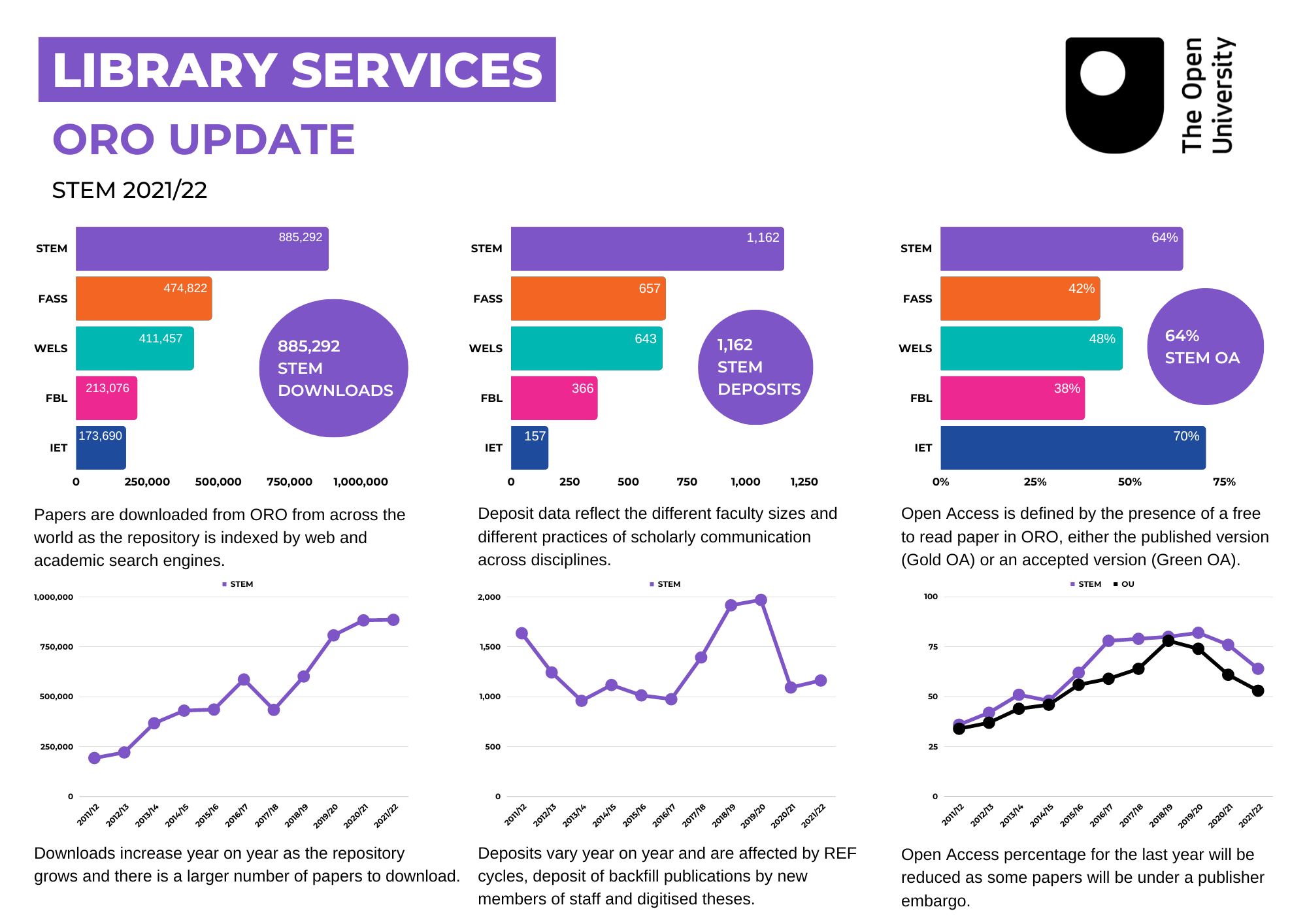
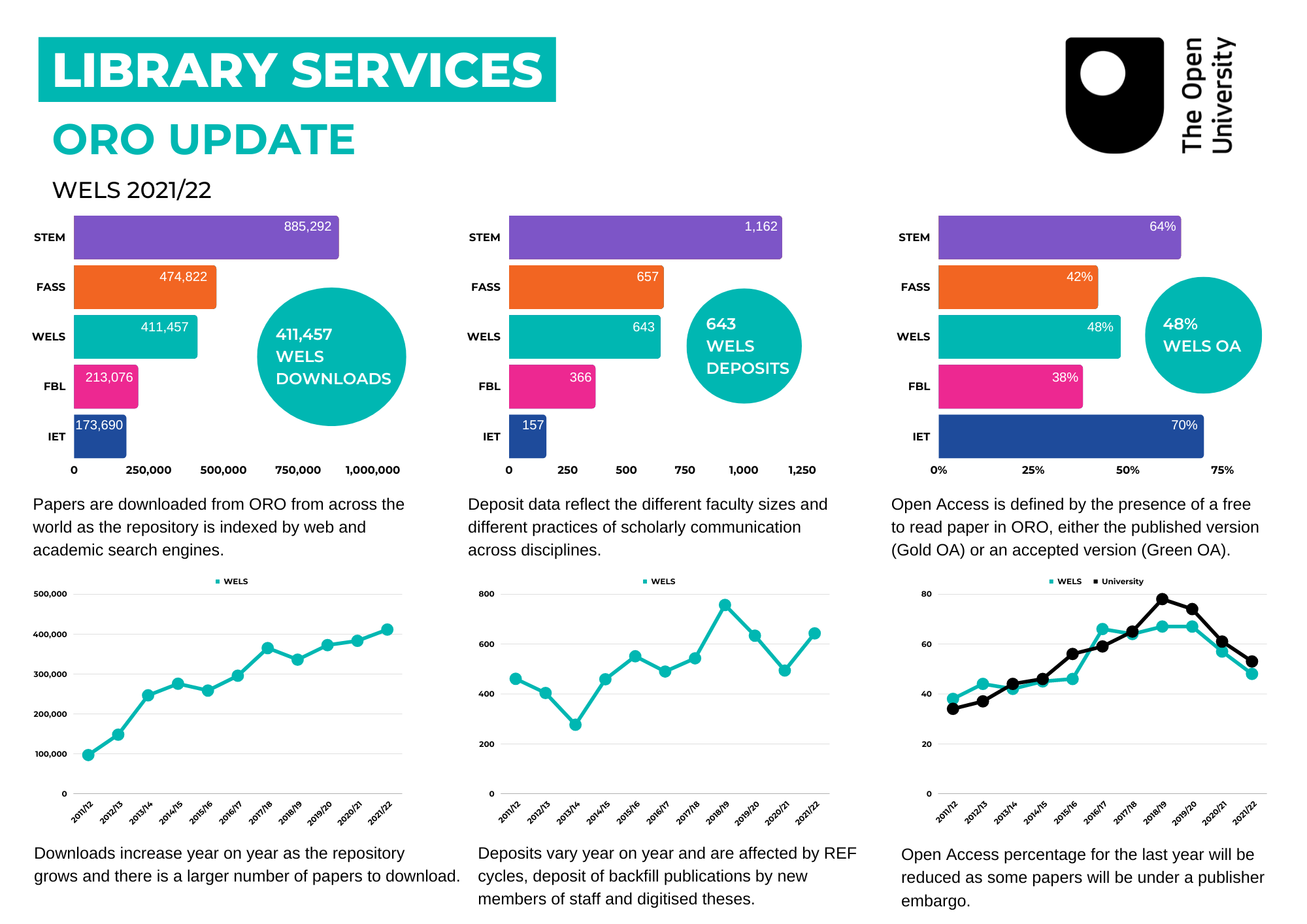
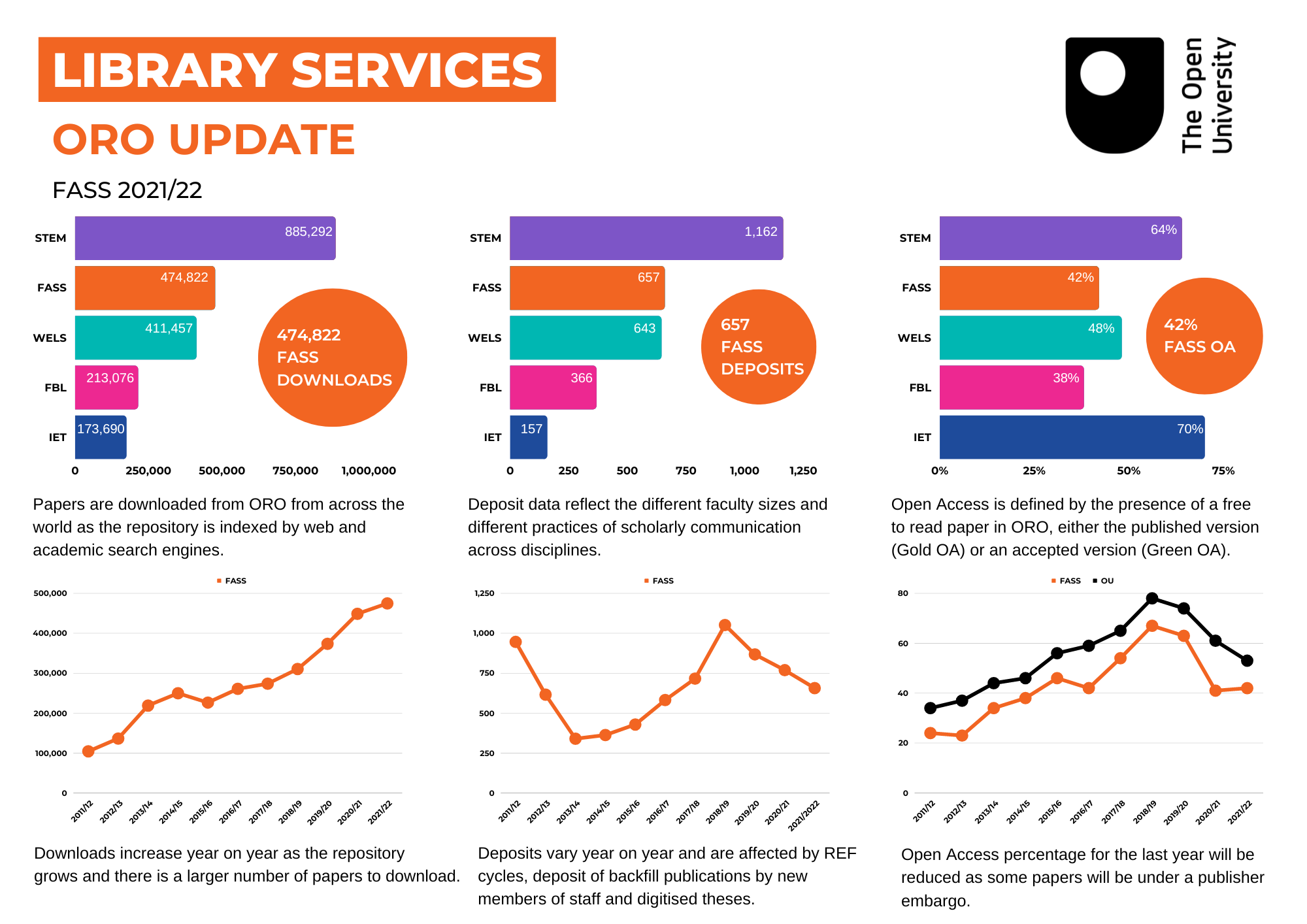
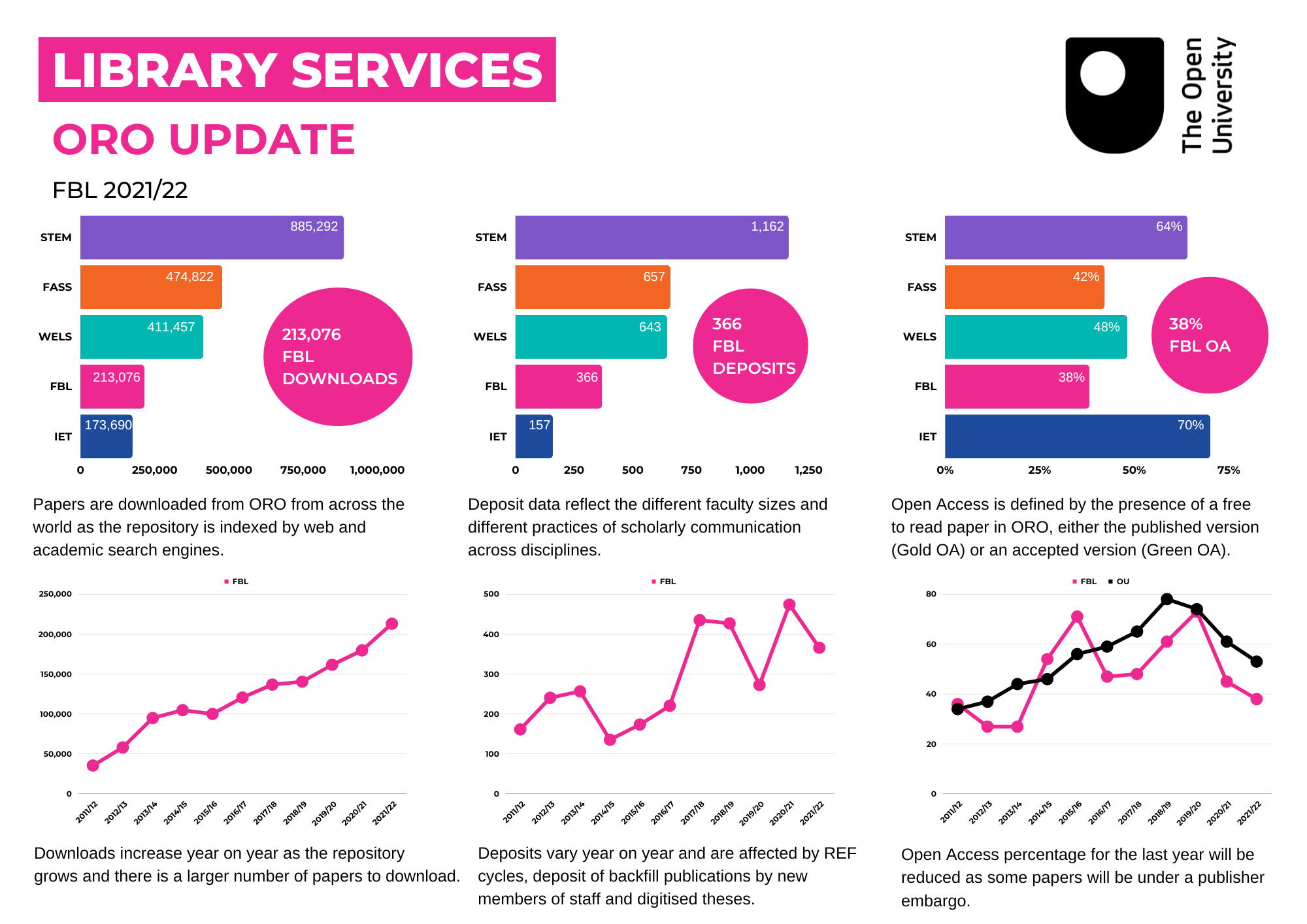
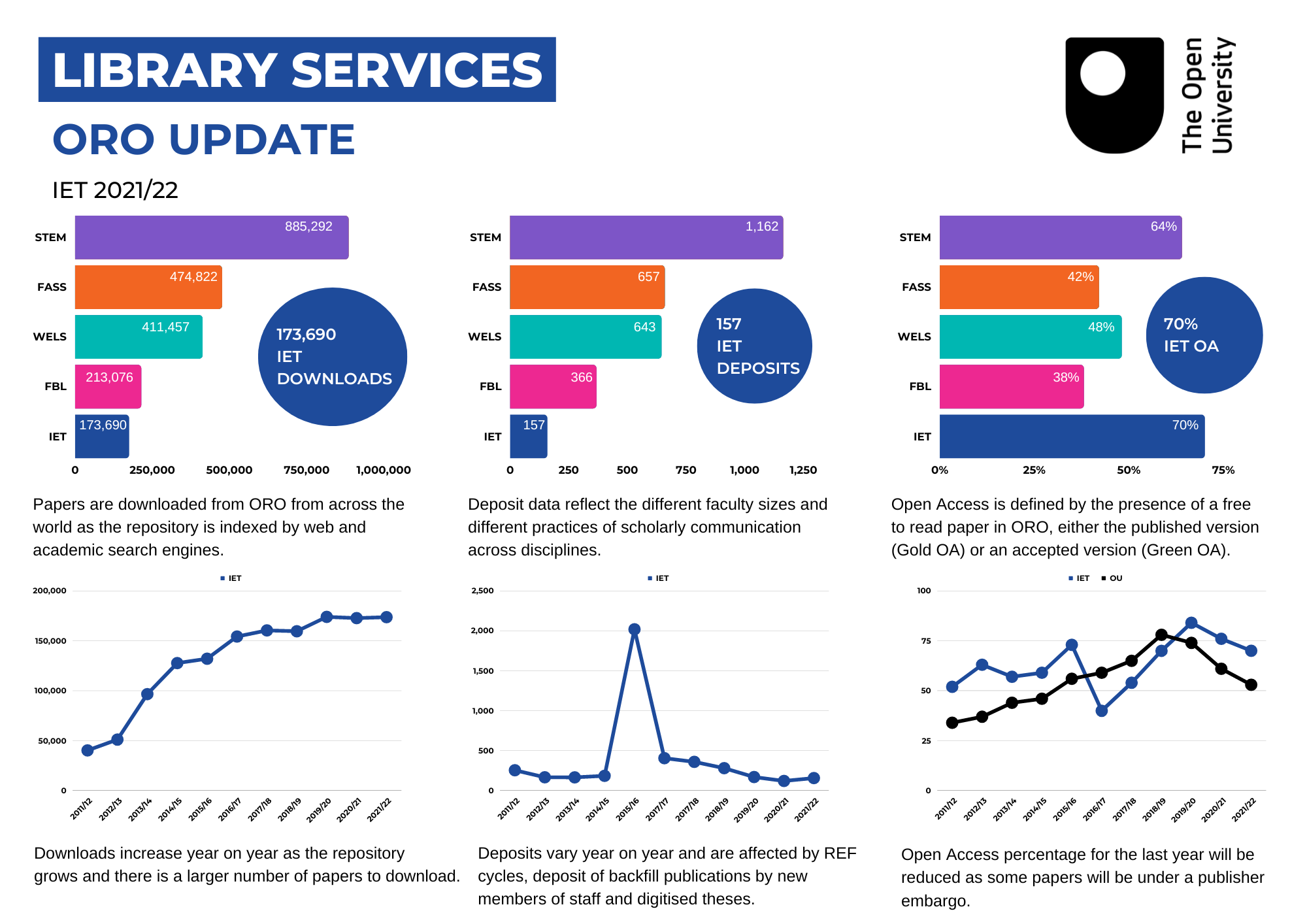
The year ahead.
Some highlights for the upcoming year.
ORCID integration. This year the ORO service will be updating the ORCID integration to support addition of items from the ORCID hub to ORO.
EDI work. I’m exploring ways in which both the system and service can be more inclusive. How can the repository be anti-racist.
Data quality. We want to improve the user experience and the discoverabilty of the service. To do this we will benchmark and do systematic quality checking of content and weblinks.
New (and not so new) research collections. Working in partnership with faculty and the University archive i’m wanting to host collections of unpublished research papers (e.g. Departmental Working papers).
